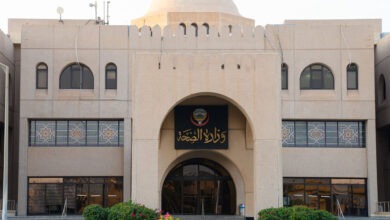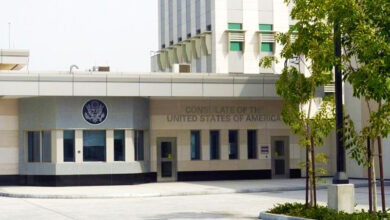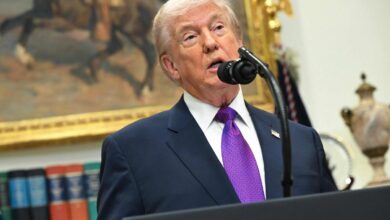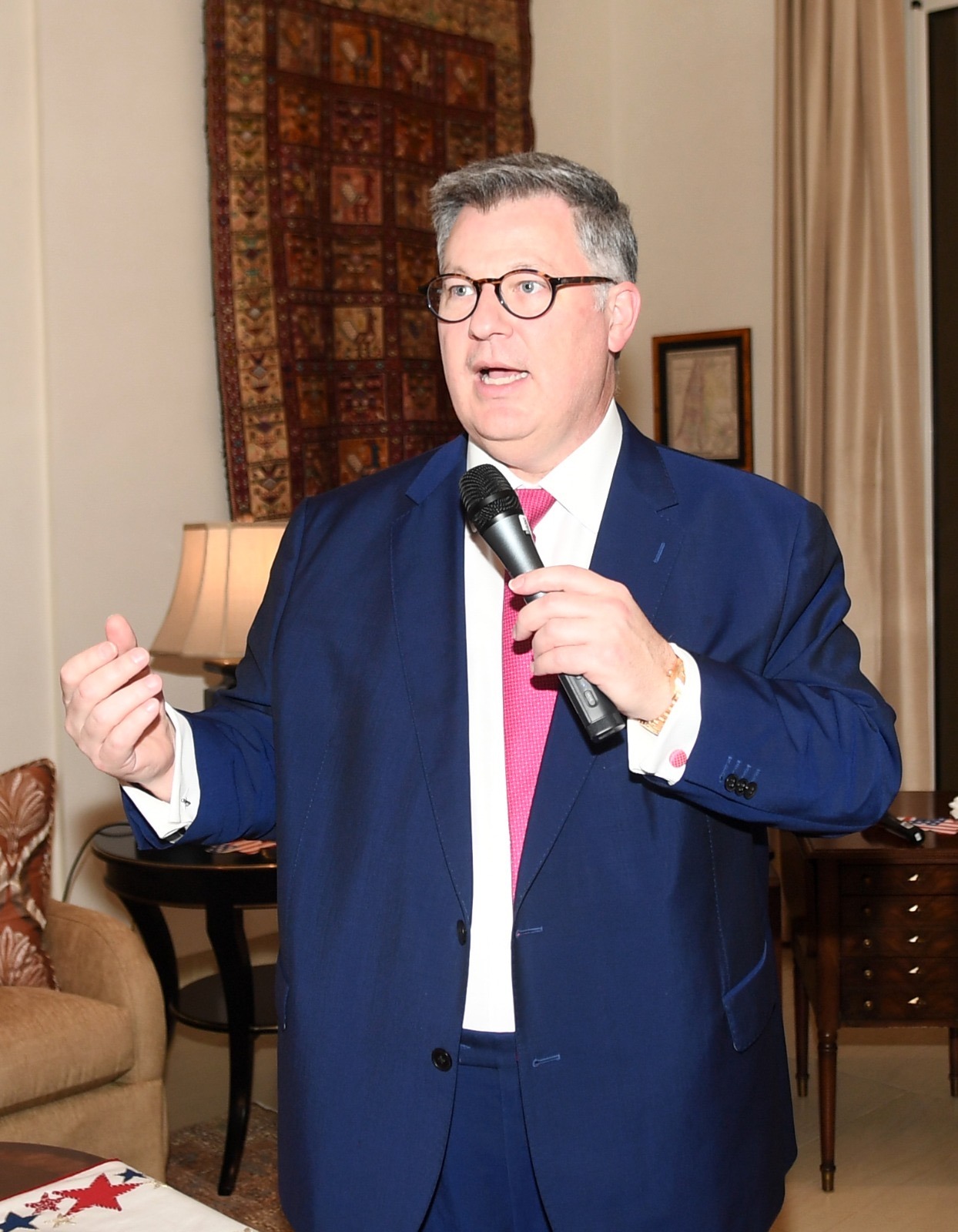
• Stephen Butler, the Chargé d’Affaires of the U.S. embassy emphasizes that the core American national interest remains constant, so no major changes are expected, only adjustments on the margins.
U.S. Embassy Chargé d’Affaires Stephen Butler described America’s Election Day as an exciting event, noting that over 73 million people had already voted early, even before the official voting process began.
Butler explained during a reception held at his residence, titled “The Night of the U.S. Presidential Election,” that the event provided an opportunity for people in Kuwait who follow the American political system—including academics, critics, and political analysts—to discuss the American electoral process, delve into its structure, and ask questions, particularly regarding the Electoral College system.
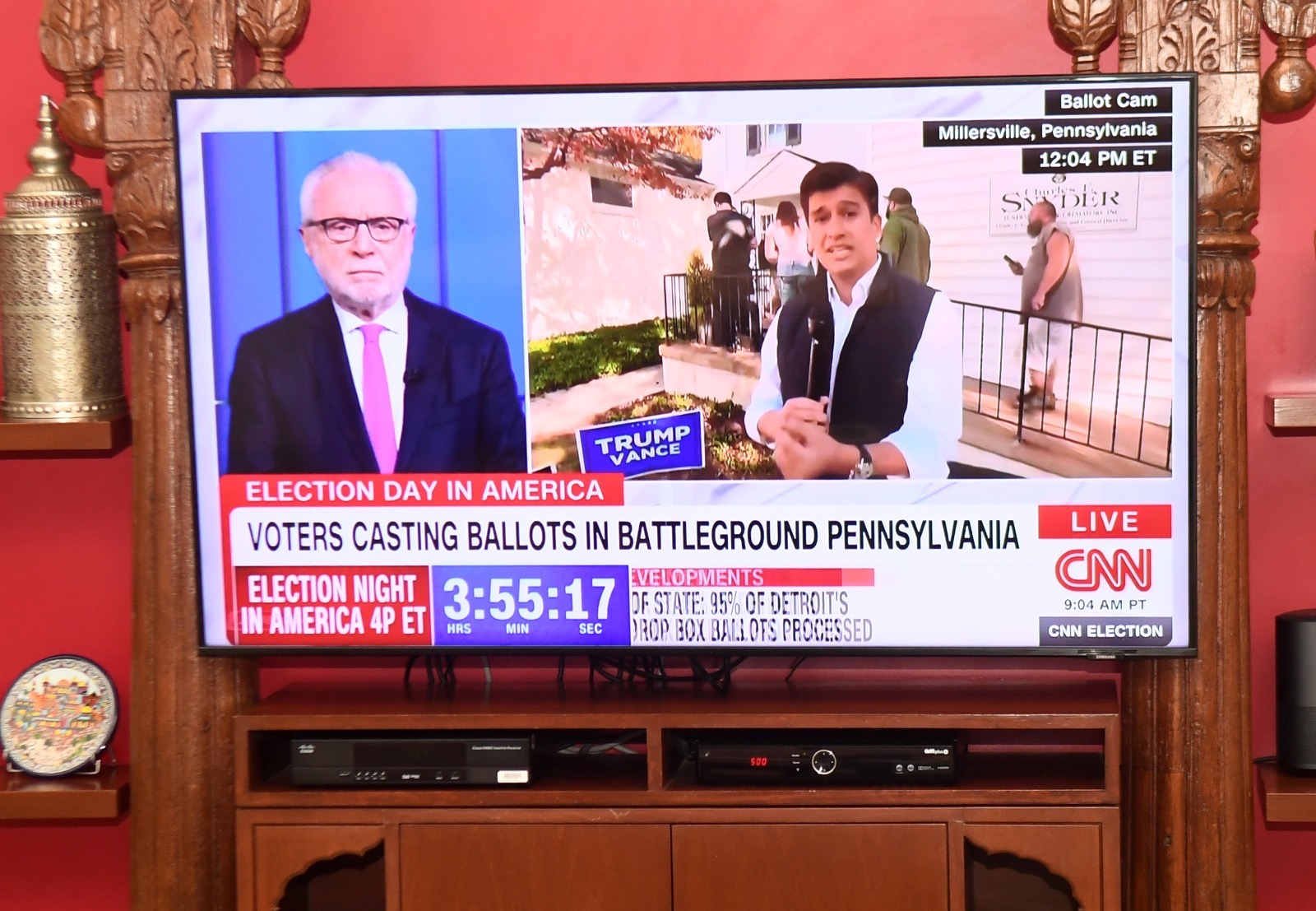
He added, “In the United States, it is possible to win the largest number of votes and still lose the election if you do not win in the Electoral College. This is really important, and we will also discuss some of the finer details that people should keep in mind as they try to understand what happens next as the election results come in.”
In response to a question about how changes in the American administration affect foreign policy and relations with countries in the region, he said that with any change in administration, there may be some shifts in policy on the periphery.
However, he emphasized that the core American national interest remains constant, so no major changes are expected, only adjustments on the margins.
He added that the U.S. election is not only for the president and vice president but also involves electing a third of the Senate and the entire House of Representatives, which could lead to shifts in party control—such as Republicans controlling the House and Democrats controlling the Senate, or vice versa after Election Day. He noted that policy shifts are not limited to presidential elections.
Regarding the number of American citizens in Kuwait eligible to vote in the presidential elections, he said, “Any American citizen in Kuwait who is 18 years or older and registered to vote in their home state is qualified and entitled to vote. Many of them contacted their state authorities to obtain absentee ballots for the election, and some states send these ballots via email.”
He added, “We have fifty states with different sets of rules, so in my home state of Kentucky, they sent my ballot via email.” He noted that the U.S. election system is decentralized, with each of the fifty states having its own distinct procedures.








